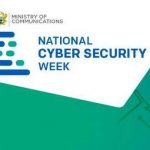Someone told me that you can’t use the GhanaPostGPS app when your cellular data was off. I thought that was odd and called BS.
So I turned off my cellular data and tried the application again.
Guess what? It didn’t work. They were right.
And so begins the debate about the current solution being deployed to solve the addressing system in Ghana.
Last week, the President Nana Akufo Addo officially unveiled the digital addressing system that Ghana has been seemingly waiting for. It felt like a long time coming. Finally, the problems of trying to locate places in Ghana without the need for identification of landmarks and other dubious directions would be a thing of the past.
But is the current solution for Ghana’s addressing problem really in the form of a “mobile application” called GhanaPostGPS?

I decided to take the app through its paces and see exactly how it would be solving Ghana’s Addressing problems.
Dude, Where’s My Location?
When you first start the application, it asks you to verify with your number.
First red flag: Why does a mapping application need my phone number to verify anything? And why doesn’t it tell me why it needs it? Is it for security reasons? Am I really signing up for an account?
There isn’t an explanation given. (*Also the Privacy Policy and Terms of Conditions on the app just redirects you to the GhanaPostGPS website)
Once, you’re past the verification screen, the app starts to locate your current position via GPS. The concept of the app is that it divides Ghana into grids of 5m x 5m squares and assigns each grid a unique address.
The process appears to work fine. On the main page, I’m given the option of searching for a particular location via the search bar. I searched for the “Accra Mall” and it showed me the location, along with the “digital address”. If you were at home, the app would pick your current location and would assign it a digital address.

There is an option in the application where users can officially verify their address by inputting your ID number of their ID type (Passport, Driver’s License, Voter ID).
So does this concept really solve the problem of addressing or does it just assign an addressing format to a location?
But how does the back end verification work? What database is the app querying to verify that a user’s ID is valid? I’m not really certain.
So does this concept really solve the problem of addressing or does it just assign an addressing format to a location?
I asked a couple of questions in an earlier article about the adoption of this “system”. Are institutions like banks and other entities going to use this application to get the addresses of citizens? Or am I going to walk into a bank and have to draw my directions on paper when giving my home address?
Another question is whether the government is going to force entities like banks to use this app.
No Data? No Location For You
At the moment, this application does NOT function offline. Did the makers of the address system solution take into account that some areas in Ghana could have bad network service? And if they did, is there a roadmap to implement an offline feature?
I did listen to an interview in which the makers of the app did say they had an offline mode feature but it was only for the Ghana Post to use.
Again, that makes things a bit more confusing: Who is this app for exactly? The citizen end user or Ghana Post? Also, what would be the difference between the offline feature that the GhanaPost would be using versus the one that the end user would use?
(*If you’re noticing a theme here, it’s that I have lots of questions and unfortunately, not a lot of answers…*)
GhanaPostGPS vs SnooCode


I think it’s best to address the elephant in the room. Most of my friends in the tech community are still not quite satisfied with why GhanaPostGPS was chosen instead of SnooCode for this digital address project. For now, I’m just going to go into the differences and compare the two apps without wading into the issue of procurement or tendering process. Most of the things I know are more of speculation until the hard facts come out.
So here’s how both apps stack up against each other:
Offline Mode
Simply put, SnooCode works when your data is off. GhanaPostGPS does not. That simple.
Winner: SnooCode
Address Verification
At the moment, SnooCode allows you to add/save a location to your address book for future referral. GhanaPostGPS also allows the user to add/save a location.
But with GhanaPostGPS, there is an option to officially verify your home address or place of business by inputting an official ID to verify. Given the benefit of the doubt and assuming that it works, I would say GhanaPostGPS has an advantage here.
Winner: GhanaPostGPS
Usability And Visual Design
This is my opinion from user interface standpoint. I find the simple interface of SnooCode to be better than GhanaPostGPS. This is not to say that SnooCode will win awards for best design of the year but the simplicity of the app design works best in my opinion and it’s much easier to get into.
GhanaPostGPS on the other is a bit complicated. It has hidden menu screens, lots of menu items and buttons. Some icons especially the ones at the top don’t make sense. If you’re a not a tech savvy person, this app can be a bit daunting and could be a turn off as well. Too much information overload.
Winner: SnooCode
Speed
As far as the time that it takes to open both apps and generate an address for your location, SnooCode takes the lead here. You can actually feel that it’s a lighter app and the time that it takes to generate an address is much quicker than GhanaPostGPS.
Winner: SnooCode
Those are just a few feature comparisons between the SnooCode and GhanaPostGPS.
The Mobile Application Vs Platform Debate
In using both SnooCode and GhanaPostGPS, I think there’s a question about how to deal with our current addressing situation. Do we go for an “App” solution or a “Platform” solution?
If this is an addressing “system”, does that mean it’s interconnected with government institutions? If I go to Driver Vehicle and Licensing Authority (DVLA), will I be given the option to use my digital address as proof of my home address?
Someone asked me why there wasn’t an “API” built but rather an “App” was designed and built to deal with the addressing problem. Frankly, I don’t know the answer. But I know for a fact that there are a lot of talented designers and developers in Ghana who could have come up with a (better?) solution to help fix the problem. There are always hackatons and apps competition where people regularly compete and showcase their skills and develop solutions.
So couldn’t the government have conducted an open competition to try and get the best solution possible? Couldn’t open tools have been used to build a solution to solve our national problem?
If this is an addressing “system”, does that mean it’s interconnected with government institutions? If I go to Driver Vehicle and Licensing Authority (DVLA), will I be given the option to use my digital address as proof of my home address?
I feel like I’m asking a lot of questions. But that’s because I’m still uncertain to how this current solution is fixing our problem. What’s happening to the data when I input information to the app? Is it stored by the government since it’s a private firm that built this? How do other entities like the Ghana Police get involved? How does the ID verification on the app work?
Lots and lots of questions….
Closing Thoughts
I used the GhanaGPSPost for three days and then I shoved it back into my app drawer on my phone, possibly never to be used again. It’s not that the app doesn’t work, the question is whether the product is actually solving a problem, in this case, our addressing system. If you’re not tech savvy or run into problems with this app, you’re likely to not want to use it after the first impressions.
I don’t regularly see businesses putting street names and numbers on their business cards and addresses on their websites for people to locate them. I do however see descriptions of landmarks and the regular “Opposite Of/Adjacent To [Insert Landmark]” quite often.
I wrote about Ghanaians and making use of the Street signs for finding their way around. Since the completion and implementation of street signs in most parts of Accra and other parts of the country, are businesses and individuals taking advantage of them?
I don’t regularly see businesses putting street names and numbers on their business cards and addresses on their websites for people to locate them. I do however see descriptions of landmarks and the regular “Opposite Of/Adjacent To [Insert Landmark]” quite often.
It would appear that the Ghana government and the company behind this GhanaPostGPS thought the solution to solving Ghana’s addressing problem was more technological and could be solved with an “app”. Technology, in this case, is not solving the problem. It would appear our problems are more of an educative nature than technological.
Google Maps works fine in Ghana. It doesn’t get every single location correct but it works 95% of the time when I use it.
But if the Uber drivers in Ghana are having problems with Google Maps when picking up passengers, how much so are they going to have with the GhanaPostGPS app? He/she is not used to using a screen to locate a particular spot or location. They’re probably more used to finding areas using landmarks. In that case, there needs to be re-training of the Ghanaian mindset to using street names to find locations and homes.
I can’t help but feel that the novelty of this “Digital Address System” will wear off and everyone will back to what they were doing in terms of finding locations
From my recent trip to Lagos, drivers had no problem using street names and numbers to find locations. Everyone would ask you what street you were going to for your drop off location. Hardly did you get the “take the left turn at the Blue House” situation. It was always more of “Go to Jackson Street, Number 10. It’s a black gate” in finding your way around.
Ghana has it’s own street names name. So isn’t it time we start using and adopting them?
I can’t help but feel that the novelty of this “Digital Address System” will wear off and everyone will go back to what they were doing in terms of finding locations. I can’t say that I’m going to use the GhanaPostGPS app regularly. Maybe if I wanted to get my GhanaCard, I would use it once and revert to using Google Maps to finding locations.
The success of this app will depend on how other entities embrace it. If it doesn’t get buy-in from Banks, churches, businesses etc…then it won’t go far.
But like I said earlier, Ghana’s address problem isn’t really a tech problem. It’s a people problem. If the masses aren’t ready to change their mindset about finding locations in Ghana with street signs or technology, then I doubt an “app” is going to change the way they do things.

















